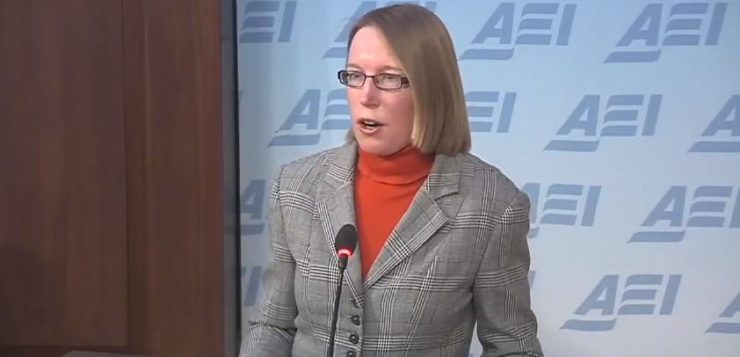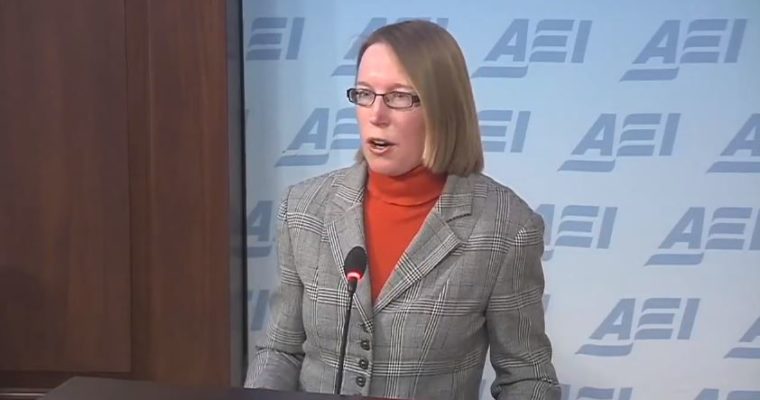Since early 2018, the approval of a Bitcoin exchange-traded fund (ETF) has become the catalyst of the next bull run of crypto to the mind of many investors in the market.
A Bitcoin ETF could certainly increase the liquidity of the dominant cryptocurrency in the U.S. market as it would allow both institutional and retail investors to securely and efficiently invest in the asset class without running in conflict with local regulations.
However, according to pro-crypto U.S. Securities and Exchange Commissioner (SEC) Hester Peirce, the approval of a Bitcoin ETF remains an uncertainty and it could take days to years.
Don’t Wait on it
At a cryptocurrency conference in Washington D.C., the commissioner said that she is working with the commission to approve an ETF based on Bitcoin and to convince more commissioners to be more open-minded towards digital assets.
Despite the optimistic stance of Peirce towards the emerging asset class, the SEC has five commissioners and a majority ruling is required for an ETF to pass.
Peirce said that investors should not wait on the ruling of the SEC as it could potentially take a long time before the SEC comes around and approve it:
“Don’t hold your breath. I do caution people to not live or die on when a crypto or bitcoin ETF gets approved. You all know that I am working on trying to convince my colleagues to have a bit more of an open mind when it comes to [crypto]. I am not as charming as some other people.”
The commissioner added that a Bitcoin ETF could be approved tomorrow or in ten years time, there is not a timeframe the commission can provide on it. But, she emphasized that the institutionalization of crypto will inevitably occur, as the infrastructure surrounding the asset class strengthens over time.
This week, the world’s second-largest stock market Nasdaq and fourth largest asset manager Fidelity led a $27.5 million funding round for a cryptocurrency exchange and futures market called ErisX, demonstrating confidence in the improvement of the infrastructure in the crypto market for institutional investors.
Interesting Variables
In July, the SEC officially rejected the Bitcoin ETF filing of the Winklevoss twins because it relied on a cryptocurrency exchange to find the base price of the currency. In the following month, the SEC rejected eight Bitcoin ETF filings that utilized the CME and CBOE futures market to discover the Bitcoin price.
The ETF filing of VanEck, which has gained significant anticipation from investors in the market primarily due to the decades-long track record of VanEck in the traditional finance sector, uniquely uses the over-the-counter (OTC) market to base the price of cryptocurrency its ETF supports.
As such, the VanEck ETF implements a different approach in contrast to the nine ETFs the SEC had to reject in the past five months.
If the OTC market is substantially larger than the cryptocurrency exchange market as several reports have claimed throughout the past year, then it could lead the SEC to re-evaluate the possibility of approving an ETF based on an entirely new market.
Featured image from Shutterstock.
Get Exclusive Crypto Analysis by Professional Traders and Investors on Hacked.com. Sign up now and get the first month for free. Click here.








